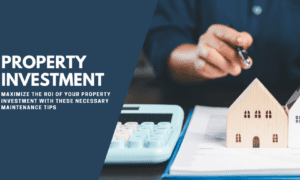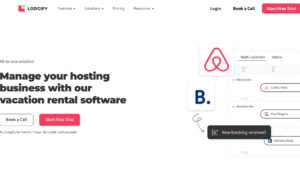Managing property is often seen as a challenging yet highly rewarding endeavor. Whether you’re a landlord overseeing a single rental property or someone managing an extensive portfolio, effective property management is key to maintaining property value, ensuring tenant satisfaction, and maximizing your return on investments.
But what exactly does property management entail? And how can you streamline operations to achieve greater success? This blog dives deep into the fundamentals of property management, offering actionable advice to help manage properties efficiently and build a strong foundation for success.
What Is Property Management?
Property management is the operation and oversight of real estate. It involves managing various aspects of a rental property, such as maintenance, tenant relations, leasing, and financial management. Professional property managers or landlords often handle tasks ranging from finding tenants to dealing with legal requirements.
At its core, property management ensures that properties function smoothly while delivering value to both tenants and property owners.
Key Responsibilities of Property Management
1. Tenant Acquisition and Retention
Finding the Right Tenants
One of the most critical parts of property management is securing reliable tenants. Proper screening processes help identify tenants with stable financial backgrounds and responsible rental histories. Tools such as credit checks, rental histories, and references play a significant role in this process.
Retaining Great Tenants
Acquiring tenants is only half the battle; retaining them is equally, if not more, important. A well-maintained property combined with good communication creates a positive rental experience, leading to higher tenant retention rates.
2. Maintenance and Repairs
Proactive Maintenance
Routine inspections and preventive maintenance are essential for keeping properties in excellent condition. Addressing minor issues before they become major problems reduces long-term costs and improves tenant satisfaction.
Handling Repairs
Whether it’s a leaking roof, faulty plumbing, or electrical issues, property managers must coordinate with contractors to address repair requests efficiently. Responding promptly to maintenance issues fosters tenant trust and loyalty.
3. Financial Management
Setting Rental Rates
Accurate pricing ensures you’re competitive in the rental market while still meeting your financial goals. Researching market rates in your area will help you determine fair pricing for your property.
Tracking Expenses and Payments
Property managers must keep a close eye on expenses like repairs, utilities, and property taxes. Managing these costs effectively ensures profitability while maintaining the value of the property. Automation tools can help track rental payments and generate financial reports.
4. Legal Compliance
Rental property laws can vary by state and municipality, making it necessary to stay informed. From drafting legally sound lease agreements to handling eviction notices, property managers must ensure full compliance with tenancy laws to avoid costly legal disputes.
Benefits of Professional Property Management
While some property owners prefer to manage their own properties, hiring a professional property management company can offer significant advantages.
- Time-Saving: Professionals handle all the details—from marketing vacancies to coordinating repairs, freeing up valuable time for property owners.
- Market Expertise: Property managers know the local market, enabling them to set competitive rental rates and attract high-quality tenants.
- Reduced Vacancy Rates: Their expertise in marketing and tenant negotiations can help fill vacancies quickly.
- Financial Oversight: Property managers maintain precise financial records, making tax reporting and expense tracking easier for owners.
Top Tools and Technology for Property Management
Technology is reshaping the property management landscape. Here are some essential tools to streamline operations:
- Rent Collection Platforms: Apps like Buildium, Rentec Direct, and PayRent allow tenants to make online payments seamlessly while organizing financial data for owners.
- Maintenance Request Systems: Platforms such as Propertyware and AppFolio enable tenants to submit repair requests digitally, improving response times.
- Property Listing Websites: Zillow, Apartments.com, and Trulia are ideal for listing rental properties and attracting tenants.
- Accounting Software: Automate your bookkeeping with systems like QuickBooks or Stessa.
By integrating these tools, property managers can save time, reduce human error, and enhance operational efficiency.
Common Challenges in Property Management (and How to Overcome Them)
1. High Turnover Rates
High tenant turnover can lead to lost income and increased marketing costs. Prevent this by building strong tenant relationships, conducting regular check-ins, and addressing concerns promptly.
2. Difficult Tenants
Managing problematic tenants can be frustrating. Address disputes calmly, ensure clear communication, and follow leasing terms. When necessary, consult legal assistance.
3. Maintenance Delays
Delayed repairs can harm tenant satisfaction. Have a network of reliable contractors and clearly prioritize urgent maintenance requests to keep your property running smoothly.
4. Cash Flow Issues
Unexpected expenses like emergency repairs can strain your budget. Establishing an emergency fund or investing in landlord insurance can act as a safety net.
Best Practices for Successful Property Management
- Communication Is Key: Keep tenants informed with regular updates and maintain open channels for feedback.
- Know Your Market: Stay updated on rental market trends, and adjust your strategies accordingly.
- Use Technology: Leverage software that streamlines finances, marketing, and tenant communications.
- Stay Organized: Develop systems for organizing tenant information, contracts, and maintenance schedules efficiently.
- Prioritize Customer Service: At the end of the day, property owners and managers are in the business of serving people. A great customer experience goes a long way.
How to Get Started with Property Management
If you’re new to managing properties or looking to refine your approach, start by building a solid action plan. Evaluate your property’s needs, identify tools or services that could save you time, and educate yourself about local rental laws.
For landlords managing multiple properties, consider outsourcing the work to property management companies. Not only will this save time, but it also ensures your properties are handled by experts.
The Future of Property Management
With the rise of AI, IoT (Internet of Things), and data-driven decision-making, property management is becoming more advanced and streamlined. From predictive maintenance tools to smart home technology, the integration of innovative solutions promises to reshape the industry while creating more convenient and efficient ways to manage properties.
Achieve Success in Property Management
Mastering property management takes time, effort, and the ability to adapt. By following these practices and leveraging tools, you can create a seamless experience for both tenants and property owners alike.
Whether you’re just starting your property management business or are seeking ways to improve operations, staying informed and proactive is the key to success.



































